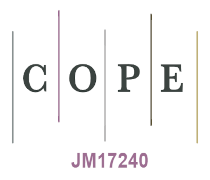Użyteczność różnych sposobów rozumienia informacji w psychologii
DOI:
https://doi.org/10.18778/1427-969X.13.02Słowa kluczowe:
cognitive psychology, information, mental process, mental processingAbstrakt
Discussions regarding the notion of information have died out several years ago. However an agreement hasn’t been reached on the exact meaning of such a term. Most often the notion of information is understood as: 1) knowledge about structure of an object, 2) third appearance of the substance, 3) perceptible difference between objects. These interpretations are not exclusive, but there is not one theory that combine them. In cognitive psychology notion of information is perceived as a paradigm. At the same time its meaning is often equated with the concept of mental process, or the content of such mental process. Mental activity and in particular intellectual activity generally is recognized and equated with processing of an information. Such interpretation ignores the fact that information cannot be processed directly because it doesn’t exist without a carrier. In fact these carriers undergo processing. The new information based on re-configuration of carrier’s structure could be re-developed. The carriers are mental representations of the carried content and they represent themselves as icons, symbols and concepts. Hence the mental activity is the processing (sometimes creating) representations.
Bibliografia
Arystoteles (1988), O duszy, PWN, Warszawa
Google Scholar
Ashby W. R. (1963), Wprowadzenie do cybernetyki, WNT, Warszawa
Google Scholar
Behtierieva N. P. (1971), Nejrofiziołogiczieskiie aspiekty psihiczieskoj diejatiel’nosti cziełowieka, Miedicina, Leningrad
Google Scholar
Biela A. (1976), Informacja a decyzja, PWN, Warszawa
Google Scholar
Brentano F. (1990), Psychologia z empirycznego punktu widzenia, PWN, Warszawa
Google Scholar
Bruner J. S. (1978), Poza dostarczone informacje, PWN, Warszawa
Google Scholar
Chlewiński Z. (1997), Podstawowe problemy teoretyczno- metodologiczne w badaniach nad wyobraźnią, „Kolokwia Psychologiczne”, 6, 29–56
Google Scholar
Chmielecki A. (2001), Między mózgiem a świadomością (próba rozwiązania problemu psychofizycznego), Wydawnictwo IFiS PAN, Warszawa
Google Scholar
Cohen J. D., Noll D. C., Schneider W. (1993), Functional magnetic resonance imaging: Overview and methods for psychological research, „Behavior Research Methods, Instruments & Computers”, 25 (2), 101–113
Google Scholar
DOI: https://doi.org/10.3758/BF03204483
Ekel J. (1971), Badania nad przetwarzaniem informacji przez człowieka, [w:] J. Kozielecki (red.), Problemy psychologii matematycznej, PWN, Warszawa, 387–423
Google Scholar
Francuz P. (2007), Teoria wyobraźni Stephena Kosslyna. Próba reinterpretacji, [w:] P. Francuz (red.), Obrazy w umyśle, Scholar, Warszawa
Google Scholar
Franus E. (1992), Struktura i ogólna metodologia nauki ergonomii, Universitas, Kraków
Google Scholar
Gerstmann S. (1987), Podstawy psychologii konkretnej, PWN, Warszawa
Google Scholar
Gonet B. (1997), Obrazowanie magnetyczno-rezonansowe, PZWL, Warszawa
Google Scholar
Guilford J. P. (1978), Natura inteligencji człowieka, PWN, Warszawa
Google Scholar
Kempisty M. (1973), Mały słownik cybernetyczny, Wiedza Powszechna, Warszawa
Google Scholar
Kosslyn S. M., Thompson W. L., Ganis G. (2006), The case for mental imagery, Oxford University Press, New York
Google Scholar
DOI: https://doi.org/10.1093/acprof:oso/9780195179088.001.0001
Kowalczyk E. (1981), O istocie informacji, WKiŁ, Warszawa
Google Scholar
Krajewski W. (1967), Związek przyczynowy, PWN, Warszawa
Google Scholar
La Mettrie J. O. (1984), Człowiek – maszyna, PWN, Warszawa
Google Scholar
Livanov M. N., Hrizman T. P. (1978), Prostranstvienno-vremiennaja organizacija bio-
Google Scholar
potenciałov mozga u czełovieka, [w:] A. A. Smirnov, A. P. Luria, W. D. Niebylicyn (red.), Jestestwiennonaucznyie osnowy psihołogii, Piedagogika, Moskwa, 206–233
Google Scholar
Młodkowski J. (2008), Efektywność widzenia przy zablokowanej strefie operacyjnej siatkówki, „Przegląd Psychologiczny”, 51 (2), 161–177
Google Scholar
Młodkowski J. (w druku), Warianty procesu przetwarzania poznawczego „Studia Psychologiczne” Nosal C. S. (1990), Psychologiczne modele umysłu, PWN, Warszawa
Google Scholar
Penrose R. (1995), Nowy umysł cesarza, Wydawnictwo Naukowe PWN, Warszawa
Google Scholar
Rutman E. M. (1979), Vyzwannyie potenciały w psihołogii i psihofiziołogii, Nauka, Moskva
Google Scholar
Szaniawski K. (1994), O nauce, rozumowaniu i wartościach, Wydawnictwo Naukowe PWN, Warszawa
Google Scholar
Pobrania
Opublikowane
Jak cytować
Numer
Dział
Licencja

Utwór dostępny jest na licencji Creative Commons Uznanie autorstwa – Użycie niekomercyjne – Bez utworów zależnych 4.0 Międzynarodowe.








